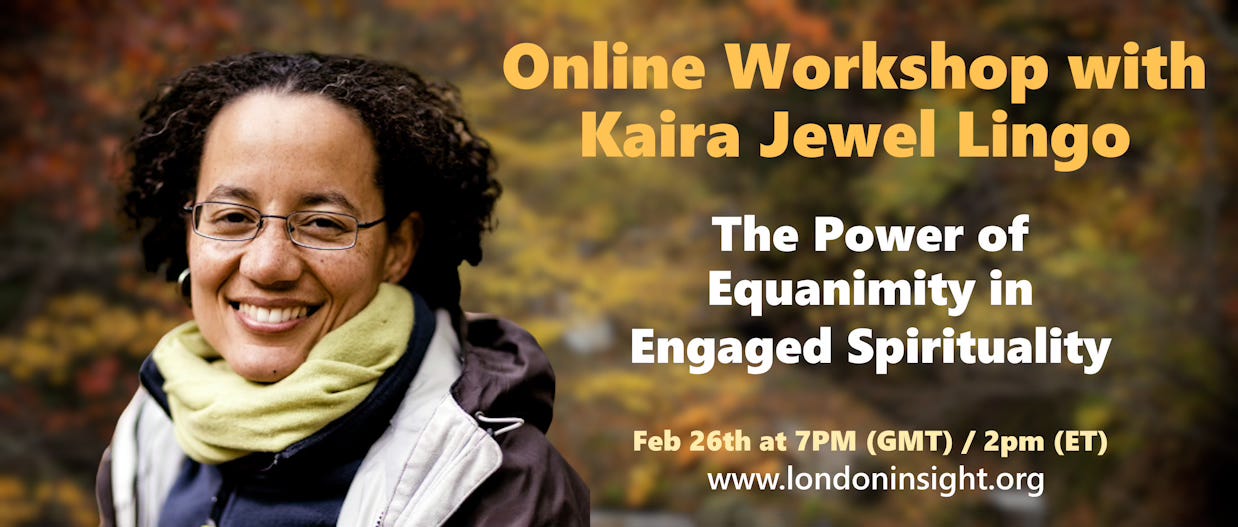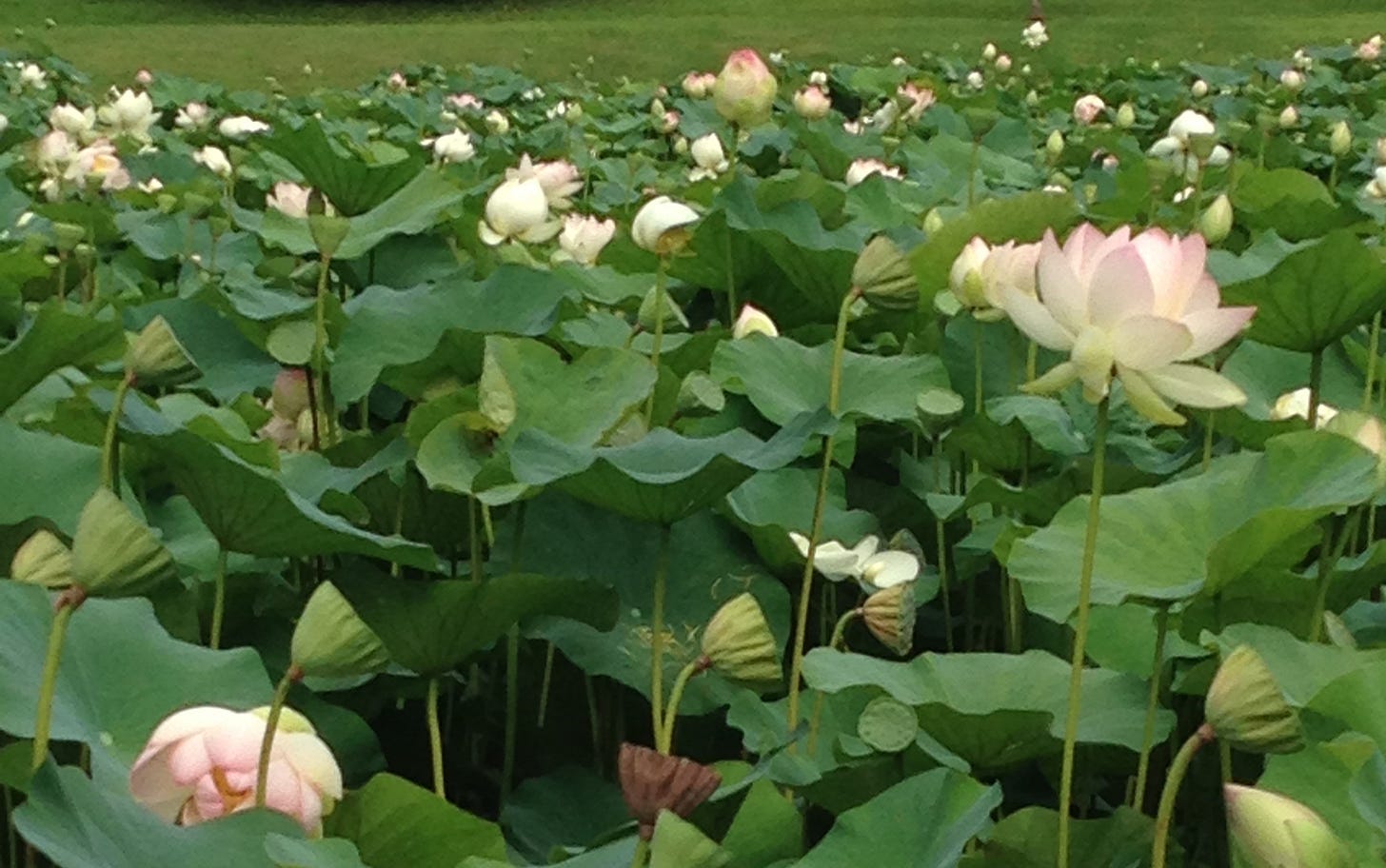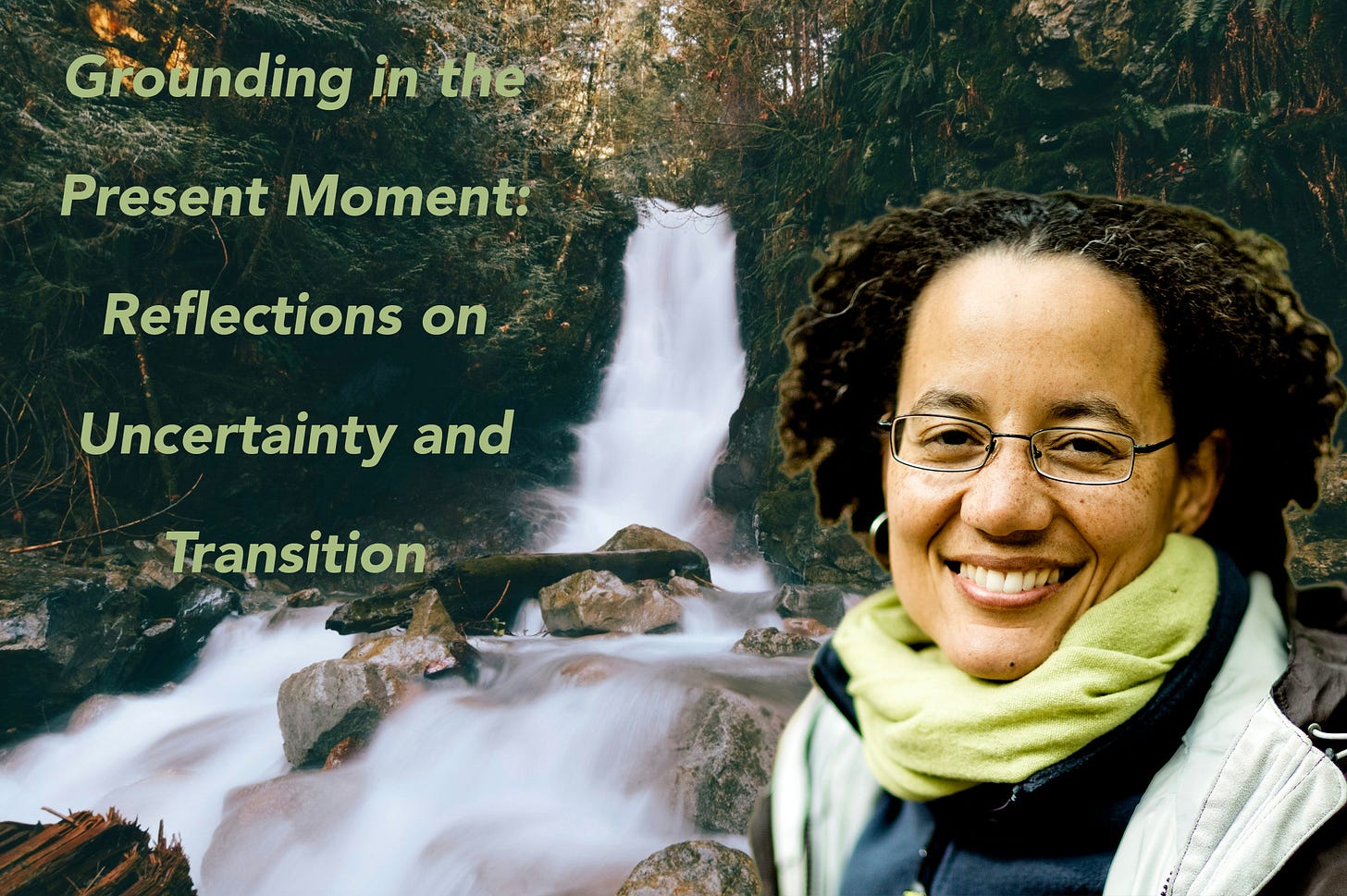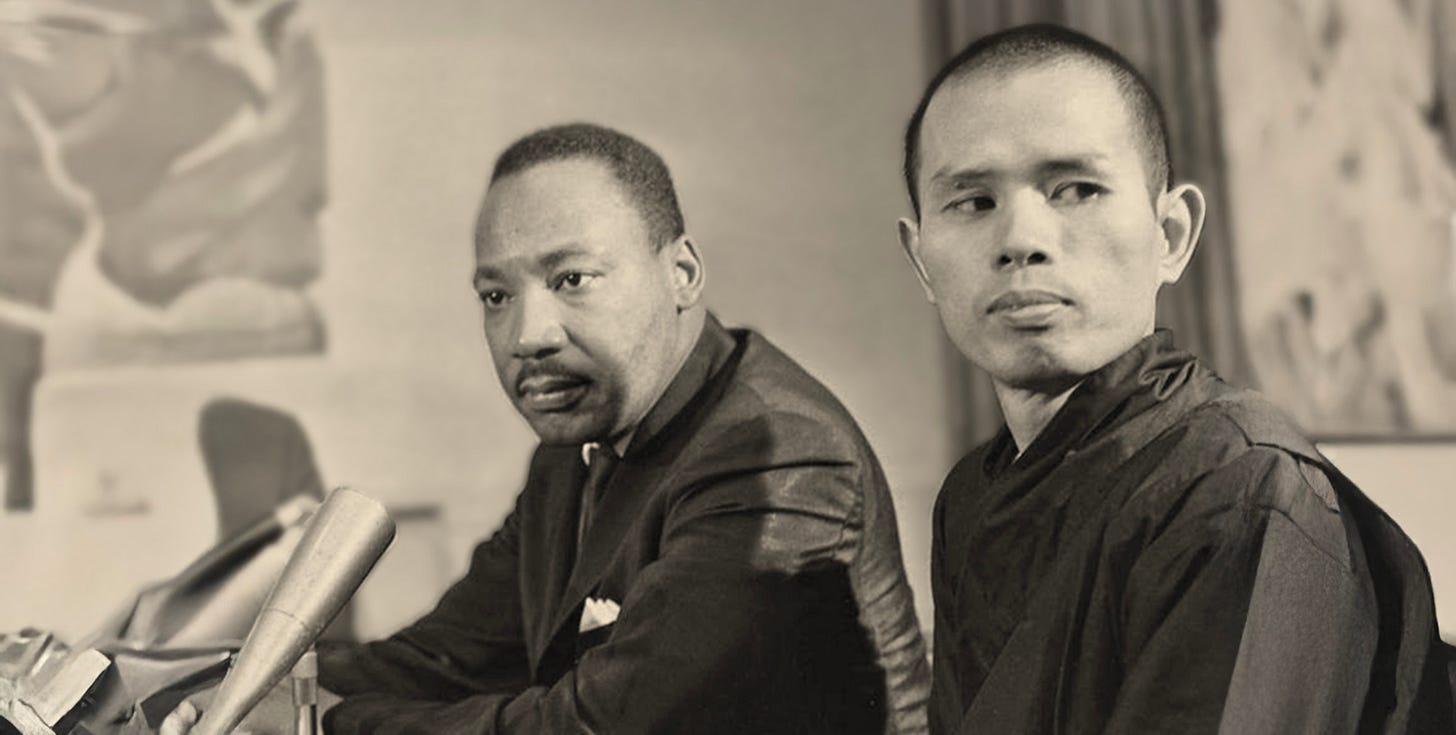Some years ago I taught with a dear friend at Schumacher College in the UK, Sophy Banks. She offered a framework I found clarifying, about how we live in a culture in which we cannot accept weakness and vulnerability in ourselves. Thus we project our hatred and mistrust of what is weak and vulnerable in ourselves onto others, often scapegoating those who are weak and vulnerable as the “other” or “the problem” because they remind us of parts of ourselves we are unable to be with. There’s a similar idea in IFS, a type of psychotherapy developed by Richard Schwartz in the 1990s. It is based on family systems therapy because in many ways the mind functions like a family unit. Instead of a unified, single personality, Schwartz suggests that everyone has multiple subpersonalities, known as ‘parts’ in IFS--which are similar to mental formations in Buddhist psychology. The parts are all governed by the ‘Self’-- which is like buddha nature in Buddhism. There are no ‘bad’ parts in IFS; even if some parts do destructive things, they are all well-intentioned. It's just that some of them try to meet their needs in unhealthy ways. Learning to get to know each part can help us heal these destructive patterns and live more fulfilled lives. In IFS there are various ‘protector’ parts, known as firefighters and managers, and their purpose is to protect our most vulnerable parts, also called ‘exiles,’ the likely younger parts of ourselves that have been wounded and are afraid, and have had to go into hiding in a sense. Many of us have been socialized to reject these tender parts of us, or were taught they were not welcome. IFS specializes in helping us work with the protector parts so that we can get them to relax and let go of their hypervigilance or other maladaptive strategies, so that we can get to know the exiles they are protecting. Only when we can get close and intimate with our exiles can we integrate them, allowing Self, or the buddha nature, to reconnect with them and heal them. Doing this is how we become truly free, no longer pushed and controlled by unseen forces from under the surface, deep in our unconscious mind. When studying this dynamic, I had the insight: what if this is a metaphor for our larger society? What if the key to our collective healing is embracing our collective exiles, the tender, wounded parts of our collective psyche? Thinking back to Sophy’s work, what would it mean to stop repressing our pain in a collective sense? This feels like a key to our collective healing, just as it is the key to our individual healing. Kazu Haga speaks to this in an interview using the image of fractals, “...fractals are like patterns that…repeat … over and over and over again, and no matter how small you zoom into something, or how far you step back and look at the big picture, it looks the same. And I've started to think about this idea that change is fractal in nature, that not only that what's possible at the smallest scale, as possible at the larger scale, but the same principles that guided transformation at the interpersonal level have to be used at the larger social levels, right?” So at this moment in time, we have a ‘strong man’ at the helm, with other (billionaire) strong men taking control, illegally gutting our federal agencies, wreaking havoc, and they glorify and reward those who act in dictatorial ways, threatening to invade--or actually invading--other nations, lying long enough and loud enough that the lies become accepted and normalized in mainstream discourse. Singling out services to rip apart that directly support those who are most vulnerable: trans people, the elderly, the poor, immigrants, children with special needs. What if all this emphasis on controlling, dominating, forcing their will on others is fundamentally about not being able to be with their own vulnerability and fear, and so projecting that onto others, making them the ‘other’ to be controlled and demonized? While I point out our current Republican leaders above, this dynamic is not restricted to any one political party but applies to those who hold power across the board. Many have criticized the recent Democratic party’s campaign for not feeling the pain of those who are most vulnerable in the US, not speaking up more vocally against the genocide in Gaza, being tone deaf in their messaging in the election and not listening to the real needs of many in the working class, the traditional base of the Democratic party. For instance, in the campaign there was no mention of raising the minimum wage, something that many people support across the country. A 2021 Pew Research poll found roughly 62% of Americans support raising the federal minimum wage to $15. So the tendency to ignore and demonize those who are struggling is there across the political spectrum. This tendency to demonize is a capacity that is there in every human heart, just as the capacity for compassion and wisdom is also there in every human heart. A most dramatic example: Adolf Hitler may have been the product of incest. His mother and father may have been uncle and niece or first cousins. There is also a possibility that he had a Jewish maternal grandfather. The murkiness of his ancestry may have been part of why he never felt at peace with himself and ordered investigators and genealogists to prove he was pure Aryan. It is possible that his cruelty and fanaticism were connected to his feeling haunted by the sense that he was a product of something dirty and wrong and so rather than turn toward that weakness and vulnerability in him, he projected his hatred for that part of himself onto whole groups of people, making them the ‘other,’ using the racist phrase that they ‘poisoned the blood’ of Germany. (A phrase our own president also recently used). Hitler may have felt his own blood was ‘poisoned’ and he projected his trauma and blew it through bodies of those who were most vulnerable in his society, Jews, homosexuals, Roma, the disabled. I have had personal experience with this. When I lived as a nun in Germany for five years, the building where we established our monastery, the European Institute for Applied Buddhism, was the site of a hospital for over 700 mentally disabled patients, most of whom were euthanized, starved, poisoned or otherwise killed during WWII. One of the most fulfilling things I did when I lived there was create the Healing Hearts exhibit, inviting sangha members from around the world to hand-sew hearts out of cloth to honor all of these disabled patients and then display them in an art installation in the lobby of our building, an area with Nazi-era mosaics still on the walls. If we are not working to look at and take care of the vulnerable places in us we won’t be able to accept and be with them in others, and if we hate these parts of ourselves, we will hate what we perceive as weakness in others, even if we are part of creating that weakness. As James Baldwin writes in the Fire Next Time, “I imagine one of the reasons people cling to their hates so stubbornly is because they sense, once hate is gone, they will be forced to deal with pain.” One of Trump’s main mentors, Roy Cohn, was a closeted gay man who built his career on prosecuting his perceived enemies, often by targeting their sexual orientation. Trump was raised by an authoritarian father, he was not allowed to be weak or admit mistakes. In the U.S. we have never collectively acknowledged the incredible harm our country was built on--attempted genocide of Indigenous peoples and mass enslavement and traficking of Africans, which included mass rape, torture and forced labor. Although the apology of President Biden, acknowledging the harm, death and trauma caused by thousands of Indian Boarding Schools that operated for over 100 years is an important departure from this collective amnesia and an important step in the right direction of truth and reconciliation. We need to deal with our pain. One of the ways we can make sure we are not contributing to this externalizing of our own individual and collective pain is to really work with our own tendency toward ill-will or hatred. In the Discourse on the 8 Realizations of Great Beings, the Sixth Realization is, “the awareness that poverty creates hatred and anger, which creates a vicious cycle of negative thoughts and actions. When practicing generosity, bodhisattvas consider everyone – friends and enemies alike – to be equal. They do not condemn anyone’s past wrongdoings or hate even those presently causing harm.” So a bodhisattva doesn’t hate anyone, even those presently causing harm. How do we practice this in times where people in power are causing a lot of harm? We can separate people from their actions and work to end the abuses without giving in to dehumanizing the other. People who cause great harm are suffering themselves. We must name their destructive actions while staying committed to loving everyone. Loretta J. Ross spoke recently about being mentored by Rev. C. T. Vivian, the great civil rights leader. He said “When you ask people to give up hate, you need to be there for them when they do.” He worked to transform white supremacists and taught Loretta Ross about how to befriend and support those who had renounced their allegiance in the KKK and other white hate groups.
Can we be a continuation of that today? Can we become a space of welcome where others feel safe enough to examine their pain as we examine our own? As we learn to befriend our tender places, we become a safe enough place for others to do the same, transforming our inner conflicts into the energy of belonging, for both ourselves and others.
From this place, justice is no longer about separating ourselves from what we name as harmful, but about recognizing that all healing is a matter of interbeing. So that even what seems most divided can find healing and a way forward together.
So there are ways to resist.
Here are a few I have found called to engage with lately:
President’s Day Peaceful Protests organized by 50501 all over the country. I’m joining the one in NYC at Union Square today! Please join in and spread the word
24 hour economic blackout on Feb 27, organized by The People’s Union.
Nonviolence International, a Palestinian-led organization, recently published this list of ways to resist the presidential take over of the US government if you are a federal employee.
Join or create a small group of people that you create deep and caring bonds with and also take action with. A good model of this is the Beloved Community Circles.
Read my partner, Adam Bucko’s wonderful recent essay, This Demands a Response: A Call to Spiritual Defiance.
Please check out Kai Chen Thom’s What’s At Stake for Trans People in 2025: A Primer for Allies & Comrades for ways to support and get involved.
I will close with this poem that has been speaking to me recently:
In a Dangerous Time
January 19, 2025 by Rosemerry Wahtola Trommer
I think of the bones
of the unsung rib cage,
the way they protect the heart.
How bone, too, is living,
how it constantly renews and remakes itself.
I think of how ribs engage with other ribs to expand,
to contract,
and because they do their solid work,
they allow the heart to float.
This is what I want to do:
to be a rib in this body of our country,
to make a safe space for love.
There is so much now that needs protection.
I want to be that flexible,
that committed to what’s vital,
that unwilling to yield.
May we be the ribs in this body of our country, making a safe space for love, and for all that now needs protection,
Kaira Jewel Lingo
Upcoming retreats and daylongs:
March 15, 2025, Brooklyn Zen Center: BIPOC Day of Mindfulness with Kaira Jewel Lingo More info and to register here. In person
March 23 - 29, 2025, Insight Meditation Society Retreat Center: Return to Wholeness: Opening to Wisdom & Love with DaRa Williams, Kaira Jewel Lingo, Shelly Graff, and Yong Oh. More info and to register here. In person
Sunday 7 - 11 am, April 6, 2025, Spirit Rock Meditation Center: Healing Our Way Home: Ancestral Wisdom for Joy and Liberation half day of practice with Kaira Jewel Lingo. More info here. Online
April 9 - 16, 2025, Spirit Rock Meditation Center: An Insight Meditation Retreat with Gil Fronsdal, DaRa Williams, Tuere Sala, and Kaira Jewel Lingo. More info here. In person
May 9 - 13, 2025, Barre Center for Buddhist Studies: Living Ecodharma: Finding Fulfillment in Healing and Loving the Earth with Kaira Jewel Lingo. By application only. More info here. In person
August 17 - 23, 2025, Belonging To Each Other: An Ecodharma Retreat for People of Color at the Rocky Mountain Ecodharma Retreat Center in Boulder County, Colorado with Kaira Jewel Lingo, Kritee Kanko, and Imtiaz Rangwala. In person.
SAVE THE DATE:
June 18 - 22, 2025, Garrison Institute: Annual BIPOC Retreat with Kaira Jewel Lingo, Marisela Gomez, and Joe Reilly. More info here. In person.
Upcoming talks:
February 19 - 28, 2025, New York Insight: Living An Ethic of Love – Celebrating Black Dharma Teachings with Kaira Jewel Lingo, JoAnna Hardy, Lama Rod Owens, Ruth King, Leslie Booker, Kate Johnson, Devin Berry, Angela Dews, Lissa Edmond, Pamela Ayo Yetunde, Rashid Hughes and Tuere Sala More info here Online
February 19, 2025, 7:00 - 9:00 am ET Spirit Rock: Wednesday Morning Meditation & Talk with Kaira Jewel Lingo. More info here Online
February 19, 2025, 7:30 - 9:00 pm ET Beloved Community for Engaged Spirituality Speakers Series: What Is A Spiritual Radical? How Can We Be One? with Adam Bucko and Kaira Jewel Lingo. To register for this gathering here. More info here and below. Online
February 25, 2025, 7:30 - 9:00 pm ET Beloved Community for Engaged Spirituality Speakers Series: Howard Thurman as a Spiritual Radical
With Lerita Coleman Brown hosted by Adam Bucko and Kaira Jewel Lingo. To register for this gathering here. More info here and below. Online
February 26, 2025, 2 - 3:15pm ET London Insight: The Power of Equanimity in Engaged Spirituality. Register here Online
April 30, 2025, 1:00 - 2:00 pm ET Washington University St. Louis: Kaira Jewel Lingo: Mindfulness & Anti-Racism Speaker Series 9th Speaker with Kaira Jewel Lingo. More info here Online
April 18, 2025, 1:00 - 2:00pm ET
Mindfulness and Compassion Grand Rounds at Harvard Medical School: Hearing the Cry of the Earth: Responding Compassionately to Change, Loss and Disruption Online
May 17, 8:30 am to 18, 2:00pm, 2025 ET
The Churchill School and Center: Building a Bridge: Connecting Educators, Caregivers, and Youth Through Mindfulness More info here and to register here. In person conference
Ongoing every Thursday at noon ET: Weekly BIPOC Meditation Sangha Online
We extend a warm invitation to Black/Indigenous/People of Color to join for an hour of meditation, teaching and sharing with Kaira Jewel Lingo and Marisela Gomez, and other guest teachers, who alternate teaching every Thursday from 12 - 1pm ET. By donation. More info here and to register here.
The Power of Equanimity in Engaged Spirituality
How can we stay clear, calm and strong in a world full of suffering and polarization? How can we use the natural mental qualities of clarity and calm to transform the world around us?
In this online evening workshop, Kaira Jewel Lingo will explore how equanimity is the key; especially when allied with the natural qualities of compassion and joy.
More info and to register here.
BIPOC Day of Mindfulness
with Kaira Jewel Lingo
Saturday 9 - 5 pm, March 15, 2025
I will lead a one-day sit featuring longer periods of sitting meditation and a dharma talk. The sit is open to all BIPOC (Black, Indigenous, and People of Color) practitioners. This is the perfect opportunity for newer practitioners to try longer sitting and to build BIPOC sangha (community), as well as for long-term practitioners to recommit to their practice.
Lunch will not be served. Participants are welcome to bring their own lunch or go out for lunch (there will be an ample break in the middle of the day.)
Boundless Mind Temple is located in the Parish House of Christ Church Cobble Hill, next to 326 Clinton Street.
More info here. Online
Return to Wholeness: Opening to Wisdom & Love with DaRa Williams, Kaira Jewel Lingo, Shelly Graff, and Yong Oh
March 23 - 29, 2025
Insight Meditation Society Retreat Center
We will cultivate our capacity to abide in wisdom and love through the integration of the mind, body, and heart. It is the integration of wisdom and love that can take us to freedom in this very life, here and now. The practices of the heart and the wisdom born from understanding can create the conditions for an integrated awareness. By engaging the heartmind through reflection and the practices of lovingkindness, compassion, appreciative joy, and equanimity, we can open and move towards wholeness as we walk this spiritual journey called life.
More info and to register here. In person
Grounding in the Present Moment: Reflections on Uncertainty and Transition
an interview with Kaira Jewel Lingo by Anu Gorukanti
January 17, 2025, with Interfaith America Inspiration.
Read here.
Interbeing as a Path to collective Awakening and Social Engagement (The Unconditioned) an interview with Kaira Jewel Lingo with show hosts Colleen Thomas and Mark Dannenfelser
Febraury 9, 2025, on Opening Minds, Opening Hearts Podcast.
Listen here. On Apple Podcasts here.
Spiritual Radicals: Saints and Bodhisattvas of the Beloved Community
A Speakers Series
What Is A Spiritual Radical? How Can We Be One? with Adam Bucko and Kaira Jewel Lingo Please join us this Wednesday, February 19, 2025, 7:30 - 9:00 pm ET for our first session Register here
Upcoming: Howard Thurman as a Spiritual Radical with Lerita Coleman Brown
Please join us on Tuesday, February 25, 2025, 7:30 - 9:00 pm ET Register here
In a world filled with violence, division, and institutions and leaders who often seem untrustworthy, we are more in need than ever of signs and symbols to guide us. Our divisions and injustices cry out for transformation. What might a path toward the beloved community look like? Who would guide us, who would help us find the way?
This season, we’re launching a speaker series to explore these questions. Each event will include time for meditation and a speaker who will share about a saint or bodhisattva—figures who embody the values and aspirations of the beloved community. Some of these guides will come from Buddhist traditions, some from Christian, and some will transcend any single category. Our speakers, who have either studied directly with these figures or deeply engaged with their lives and teachings, will lead us in reflection. Our purpose in the series is how to befriend historical figures who can inspire our engaged spiritual journeys, especially in times that are difficult.
We invite you to join us on this journey into the heart of the beloved community. Together, we’ll explore how to process the challenges in our world and find ways forward—through actions, spiritual practices, and inner healing—so we may become a source of healing and hope for the world around us.
We record the teachings and meditations for registered participants.
Monthly gatherings are offered on a donation basis. All donations from our gatherings will go towards projects working to relieve suffering, help people flourish and support social change, as well as seed our new contemplative center, The Beloved Commmunity for Engaged Spirituality and Our Lady of the Resurrection Monastery.










Yes, we may get hurt,
yet may we not be pushed to
hurt them, or to hate.
...
Yes, it may be hard,
yet may we try to listen,
even to love them.
...
Them is us when lost,
when misguided, when asleep,
when disoriented.
Beautiful piece, Kaira, so powerfully connecting internal and external healing.
Thank you for sharing from the Discourse on the 8 Realizations of Great Beings. It's so helpful to remember these foundational Buddhist teachings that point us in the direction of compassionate action. And that poem at the end, just extraordinary.
Three bows.